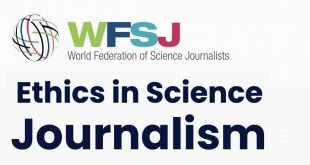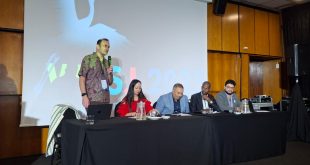World Science Forum 2024: Global Science Leaders Convene in Budapest, Hungary
The Science and Policy Interface at the Time of Global Transformations
Budapest, 12 November 2024 – The 11th edition of the World Science Forum (WSF) is once again hosted by Budapest, Hungary, on 20-23 November to discuss global trends shaping the future of science and the interaction of science, society and policy-making.
Listed among the most prestigious events of global science diplomacy, the WSF series is the result of the long-term partnership of the most influential international science organisations

committed to advancing the science-society dialogue, which attracts high-level representatives of science from well over 100 countries biennially.
WSF2024 is organised under the main theme “The Science and Policy Interface at the Time of Global Transformations” and aims to address the major challenges that prevent the global science–policy–society interface from working at its maximum efficiency. The forum’s main theme will be explored under four major pillars focusing on trust in science and risk assessment in the context of science and policy-making, advocating for the prominent role of science advice in addressing major global challenges as identified by the September UN Summit of the Future. Speakers of the conference are committed to exploring new patterns in the cooperation, coordination and governance of science, also affecting the freedom and safety of scientists. These issues are key to improving international collaboration and advancing the mobilization and use of scientific knowledge to deliver policy objectives on a global scale.
“We believe in the power of honest dialogue and the two-way communication between scientists and policy-makers. The 2024 edition of World Science Forum strives to bring about a change in attitude and ambition among members and high-level representatives of national governments, science organisations, industry, science media, NGOs and society at large”, said Tamás Freund, President of the Hungarian Academy of Sciences and Chair of the WSF2024 Steering Committee. “It is a privilege for me to welcome the delegates and host these discussions so crucial to science today in Budapest, where the WSF series was launched on the initiative of the Hungarian Academy of Sciences over 20 years ago”.
At the Opening Ceremony, after Professor Freund’s words of welcome, H.E. Tamás Sulyok, President of Hungary and patron of the event will deliver a welcome address. They will also be joined on stage by Mr Xing Qu, Deputy Director-General of the United Nations Educational Scientific and Cultural Organisation (UNESCO), Sir Peter Gluckman, President of International Science Council (ISC), and Sudip Parikh, CEO of American Association for the Advancement of Science (AAAS).
A global sustainability crisis, wars threatening global peace and security, and the emergence of new technologies accelerated by artificial intelligence are just a few examples of the transformational challenges that define the present age. Measures to fight their negative effects and to embrace and capitalize on the continuous evolution of human knowledge is the key to prevent, manage and overcome the multicrises of the 21st century.
The efficiency of the interface between science and policy is at the core of humanity’s ability to cope with these challenges. Scientific knowledge has never been more abundant, yet it has failed to reverse the alarming sustainability crisis or overcome social, economic and cultural tensions leading to the uptake of armed conflicts.
“Both the scientific community and policy-makers around the world will need to adapt, expand and renew their practices and step up their efforts and deliver evidence-based solutions that advance global well-being and solidarity while preserving our planet for future generations”, Mr. Freund added.
With the participation of ministers, high-level policy-makers and scientists from over 100 countries, WSF2024 offers a unique opportunity for science and policy debates organised in the form of exciting panel discussions and ministerial roundtables to deliver a stream of as many as 100 lectures in 4 days.
The main programme of the Forum is completed with prestigious events beyond the main agenda such as the meeting of European science funding and science performing organisations by Science Europe, various meetings of experts of science diplomacy and science advice, and workshops of early career researchers from all over the world. During the 4 days of the international conference, Hungarian research institutions and universities are organising a Science Expo to showcase the rich variety of their research activities and to popularize science and perform thrilling experiments for students and the general public visiting the exhibition.
About the World Science Forum
The World Science Forum series was inspired by the success of the “World Conference on Science for the Twenty-First Century: A New Commitment”, held between 26 June to 1 July 1999 in Budapest, Hungary, and convened by the United Nations Educational, Scientific and Cultural Organization (UNESCO) and the International Council for Science (ISC) in co-operation with other partners.
Driven by the need for a forum for discussion between the scientific community and society, the Hungarian Academy of Sciences in partnership with UNESCO, ISC and AAAS established a series of follow-up events called World Science Forum, taking place biennially and hosted every four years in Budapest.
Today, the World Science Forum is a joint effort of UNESCO, ISC, AAAS, the InterAcademy Partnership (IAP), the World Academy of Sciences (TWAS), the European Academies Science Advisory Council (EASAC), the Global Young Academy (GYA) and the Hungarian Academy of Sciences (MTA) as the host of the 2024 event.
The success of World Science Forum proves that the original idea and intention behind this initiative is becoming a reality. Scientists, politicians, decision-makers and representatives of civil society have conducted fruitful dialogues on burning issues affecting the scientific world and society simultaneously, and have summed up the common tasks ahead of us. The growing international interest in the World Science Forum shows that there is a growing consensus: World Science Forum has become the leading event of global science policy today
 الشبكة اليمنية للعلوم والبيئة (يمن ساينس) موقع يهتم بأخبار العلوم والتكنولوجيا والصحة والبيئة والسكان
الشبكة اليمنية للعلوم والبيئة (يمن ساينس) موقع يهتم بأخبار العلوم والتكنولوجيا والصحة والبيئة والسكان





